Champions Of Pop Culture #3 – Star Trek: The Next Generation’s Jean-Luc Picard
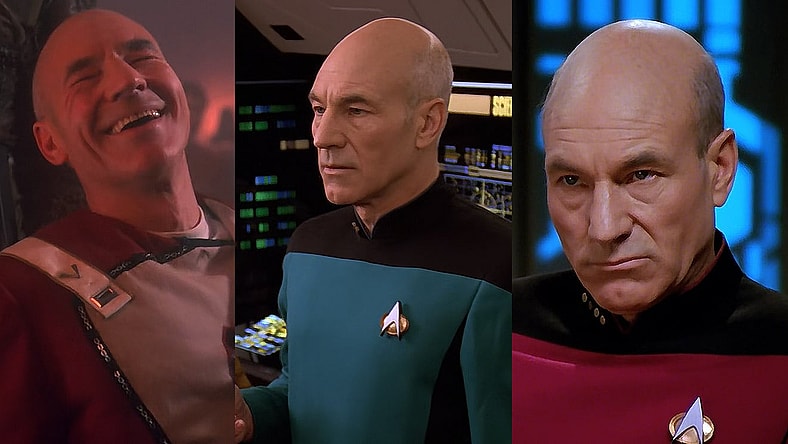
Captain Kirk might be the most famous Captain in Star Trek, but he’s not the best. That distinct honor goes to Jean-Luc Picard, the heroic, thoughtful and intelligent Captain of the Enterpise-D, Starfleet’s flagship. While the entire Star Trek series has always slanted to the political Left, this writer argues that The Next Generation was actually far more Conservative in tone and messaging than most people realize.
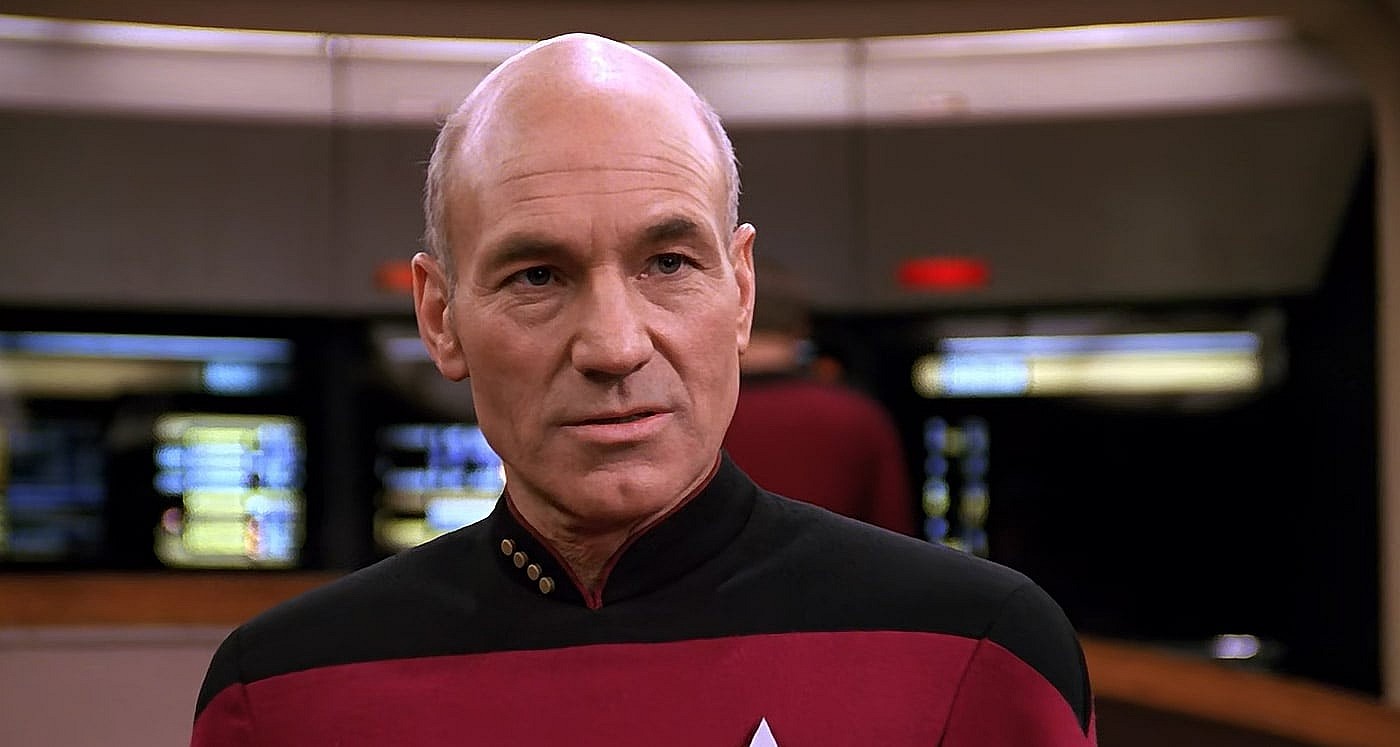
Picard was the man spreading the message about a number of social issues that were handled by a clever team of expert writers. In every episode, Picard did the right thing, even when others challenged his reasoning, or attempted to force him into another direction. Principles were a central tenant of the show, and Picard stuck to his at every turn.
His Overall Character
As many TNG fans know, Picard grew up to be something of a rascal, and this haunted his early years at Starfleet Academy. He was bold, womanizing and impetuous – the latter of which would get him stabbed through the back by a Nausicaan warrior wielding a blade, all over a bar room insult.
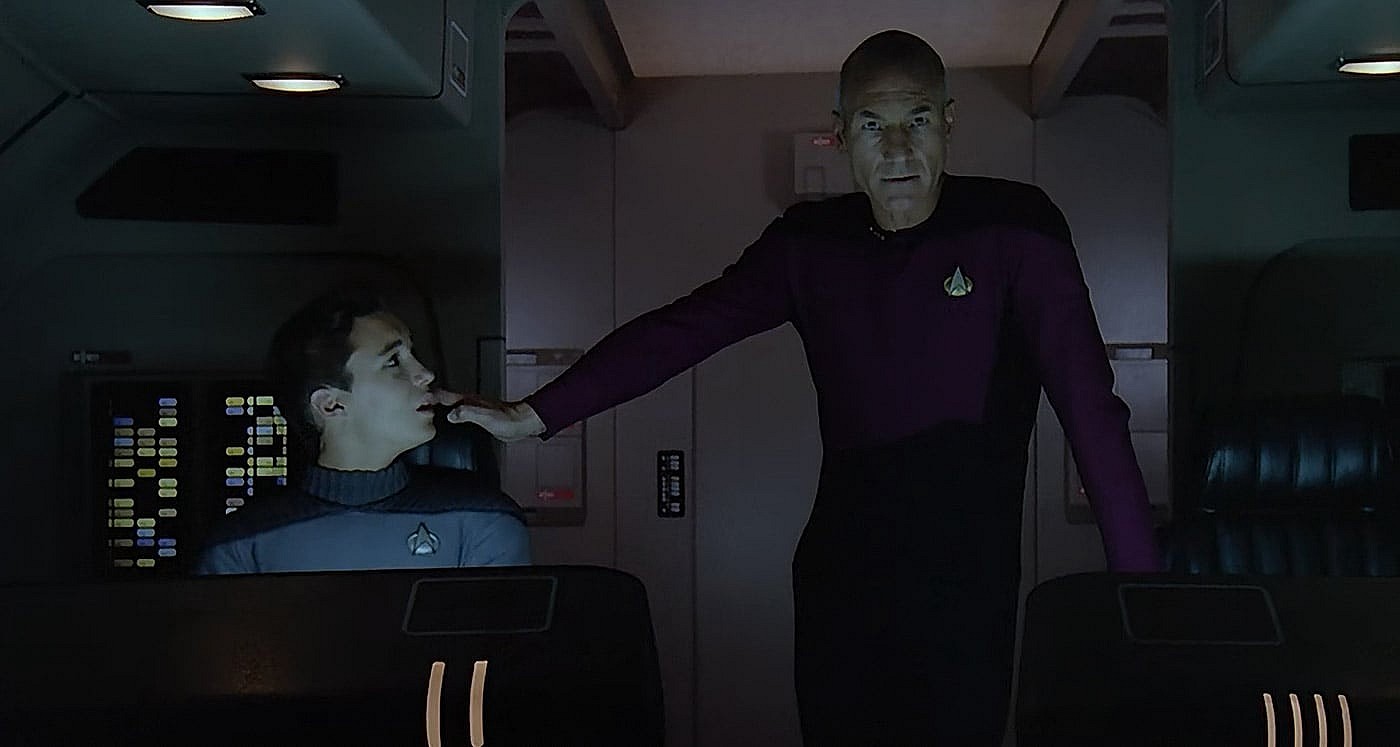
The near-death incident significantly changed Picard’s character, forcing him to re-examine his life, and follow a more mature and intellectual path. Along the way, he immersed himself in as much educational material as he could, including the studies of history and philosophy, which he held near and dear to his heart.
This put him in a prime position to act as a diplomat, and a voice of friendship for other cultures from countless worlds. By the time he took command of the Enterprise, he had become one of the most influential Captains in Starfleet, not to mention one of the wisest.
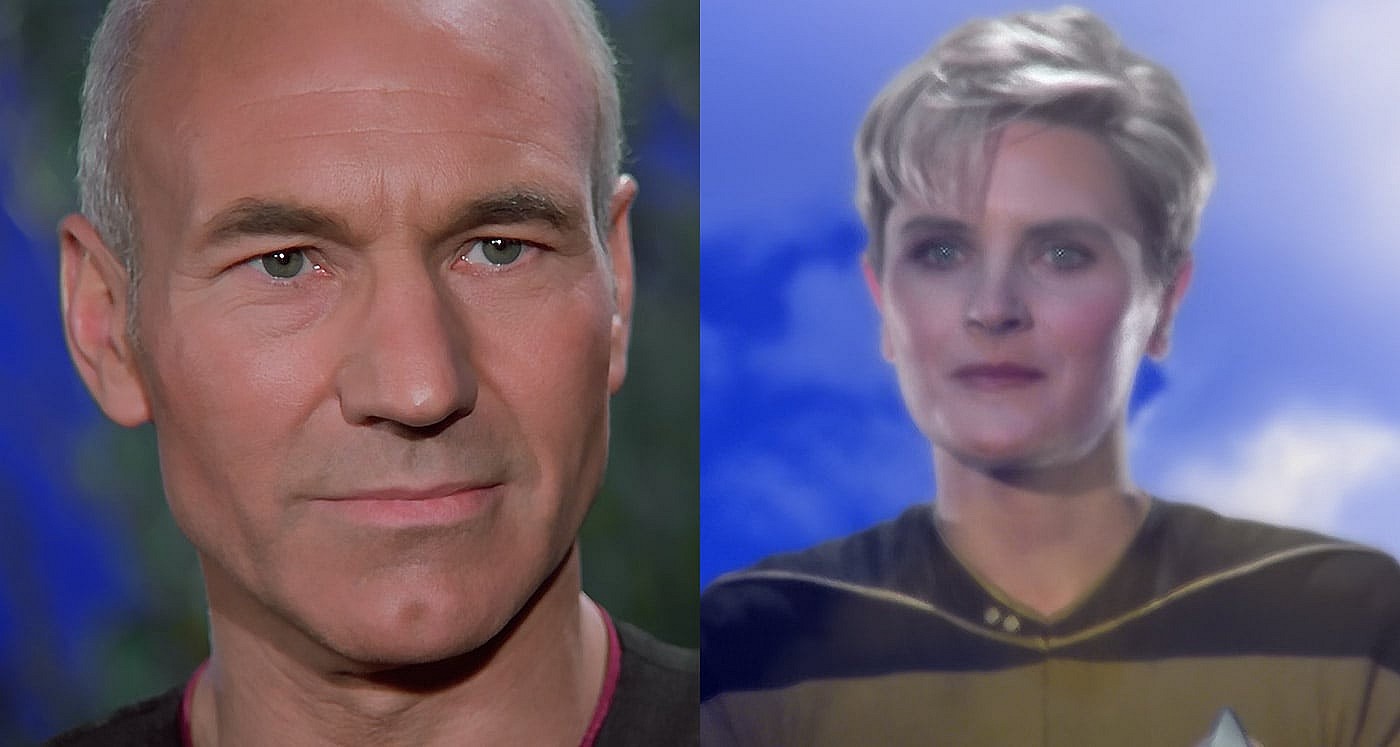
The late Tasha Yar described Picard as having “the soul of a poet,” which was an understatement. From fine classic literature, to a fondness for influential musical composers, Picard was a man who seemed to be out of his time. He may have gallivanted around the 24th century galaxy, but he could easily have retired in 19th century England.
Picard was a reassuring man who never fell victim to panic, especially in a crisis. He was the consummate leader; a man of action who was also capable of stepping back and analyzing a situation, before boldly rushing in. This temperament saved the day on more than occasion, and served as a valuable lesson for his fellow officers, and the audience watching the show.
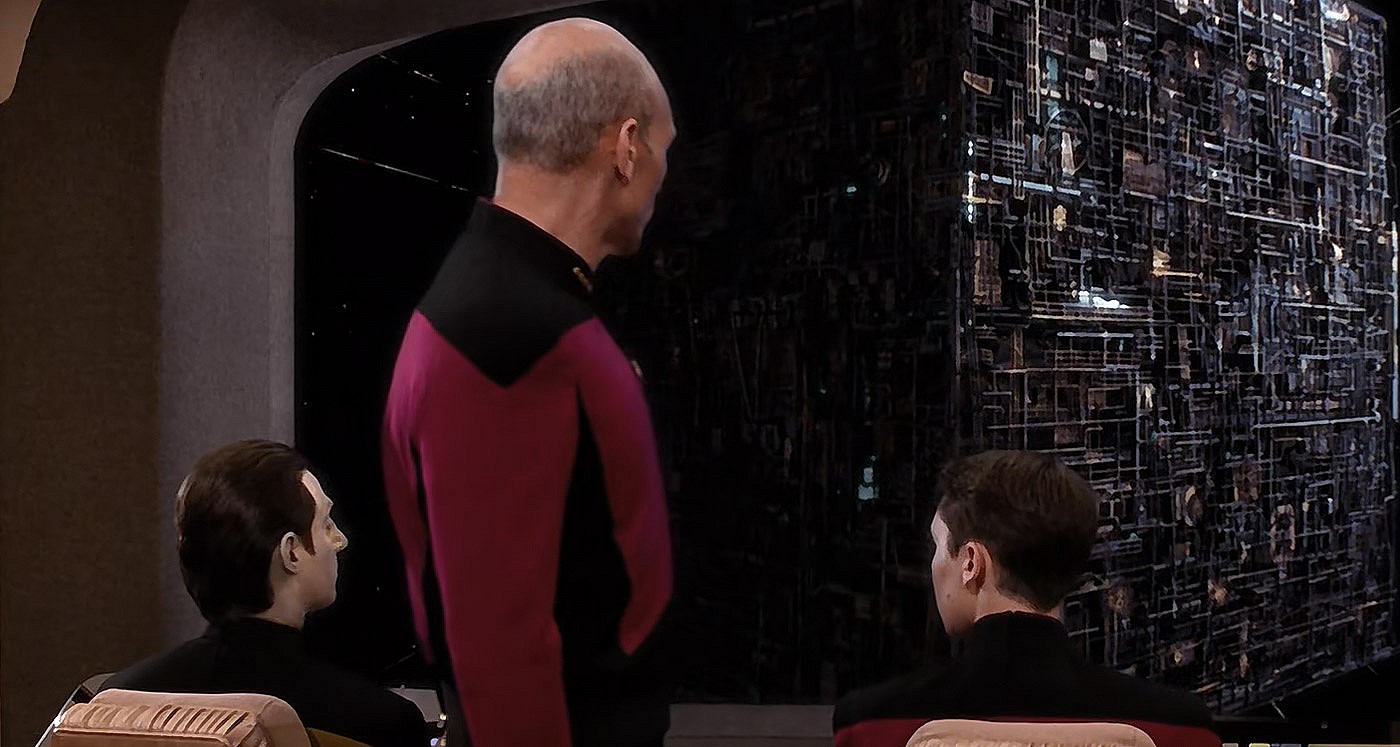
Picard’s character can best be summed up through his actions, and the stances he took on various issues. Star Trek: The Next Generation did more than just tackle moral dilemmas. It also put Picard in a few situations with no clear-cut or optimal solution to the problem. As wise as he was, he was still an imperfect man who had to trust in his principles.
Treasuring Children (“When The Bough Breaks,” Season 1)
These days, the political left view children as little more than tools to either eradicate in the womb, abandon when convenient, or indoctrinate as tools for political propagandizing. If they ever found themselves facing the same dilemma that Picard faced in this season 1 episode, the outcome would probably be quite different.
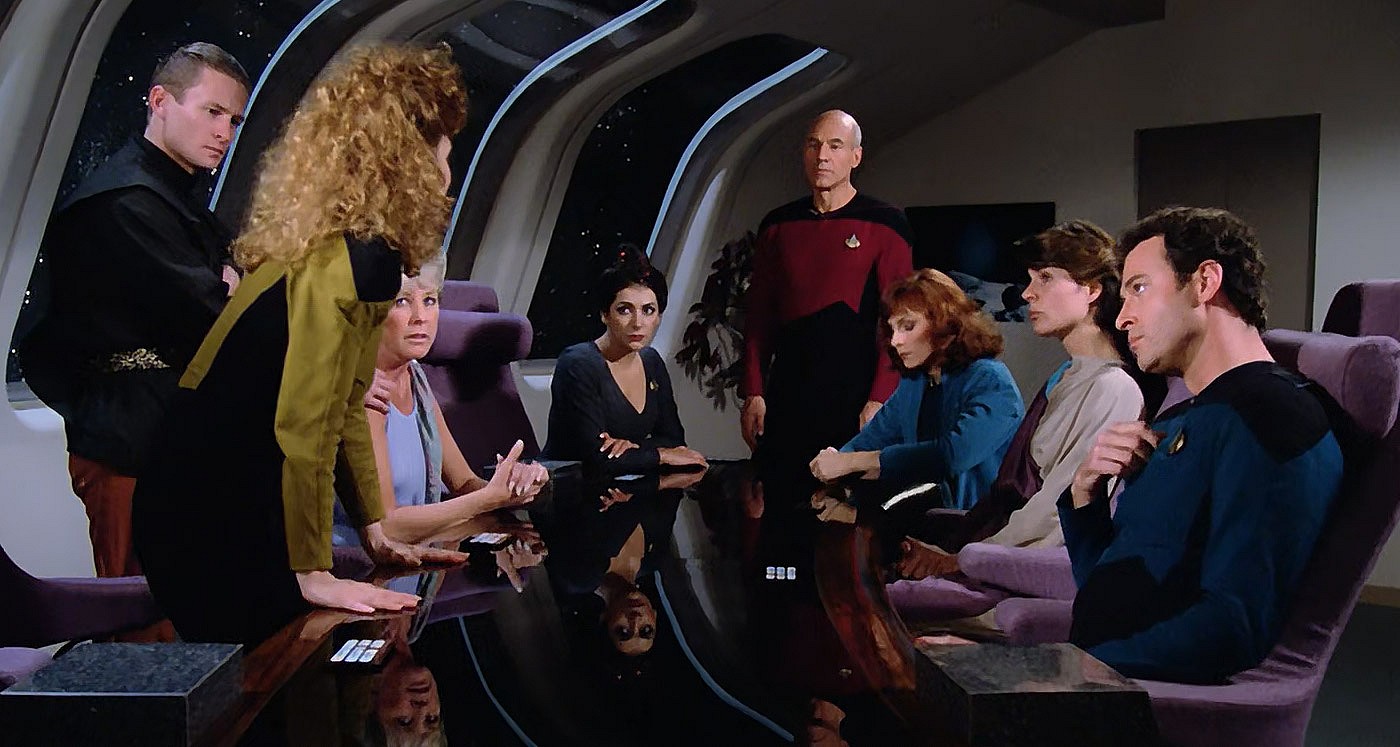
When a powerful alien race kidnaps a handful of children from the Enterprise and refuses to give them back, Picard reacts with fierce protectiveness and paternal instincts, which is ironic for his character. This particular race had powers far beyond anything Starfleet could match, and it was impossible to launch a rescue operation to take them back by force.
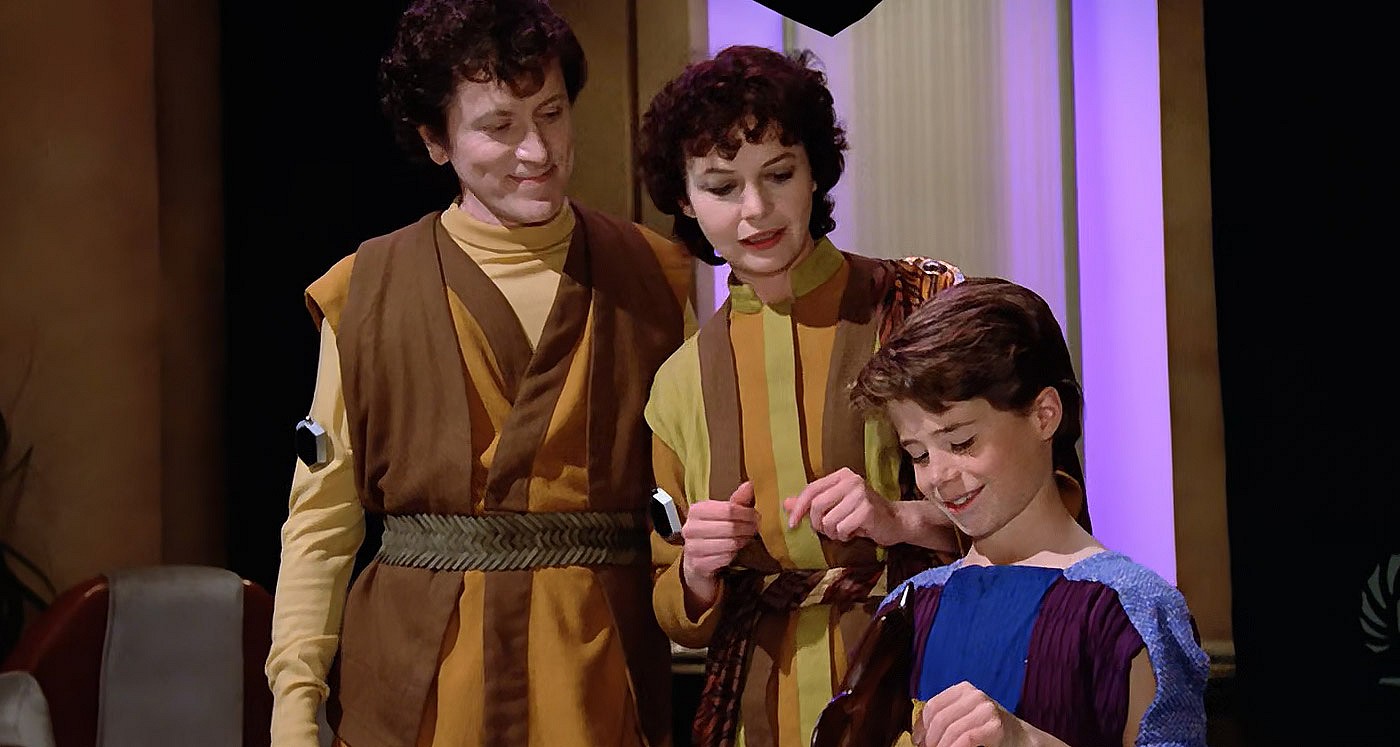
The race in question did not want to harm the children. In fact, they adored them immediately, and wanted to give them the most wonderful lives possible. Since they could not bear children of their own, it was their hope that they could raise them, and forge a new path forward for their people.
It was a noble sentiment, but Picard and the parents of those children would not part with them, under any circumstances. Eventually, Wesley Crusher convinced the children to use passive aggression as a form of protest. The alien race eventually returned them unharmed.
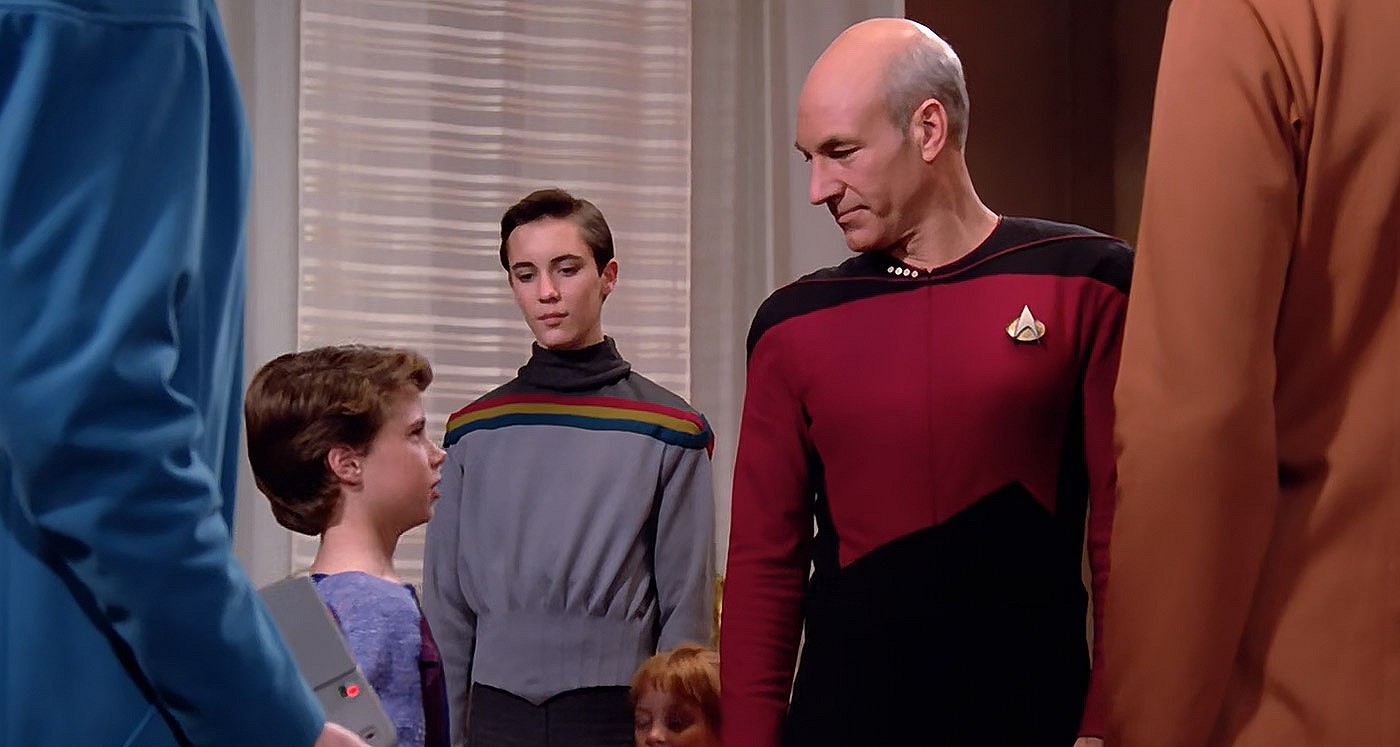
The bond between parents and children is the strongest in nature, but for the modern Left, it’s typically viewed as a nuisance. There’s a stark difference in how they view parenthood, as opposed to everyone else, which is evidenced in our public school system. Children will be sacrificed at a moment’s notice in order to preserve the Leftist agenda, such as what happened in Loudoun County, Virginia in 2021.
Breaking Up A Drug Ring (“Symbiosis,” Season 1)
This season 1 episode focused on a horrible dynamic between two worlds who each possessed something the other needed. One race was mechanically inclined, and offered their services to the other, who provided them with a cure for a supposed plague. This “cure” was actually a powerful narcotic that had addicted the entire planet, making them dependent.
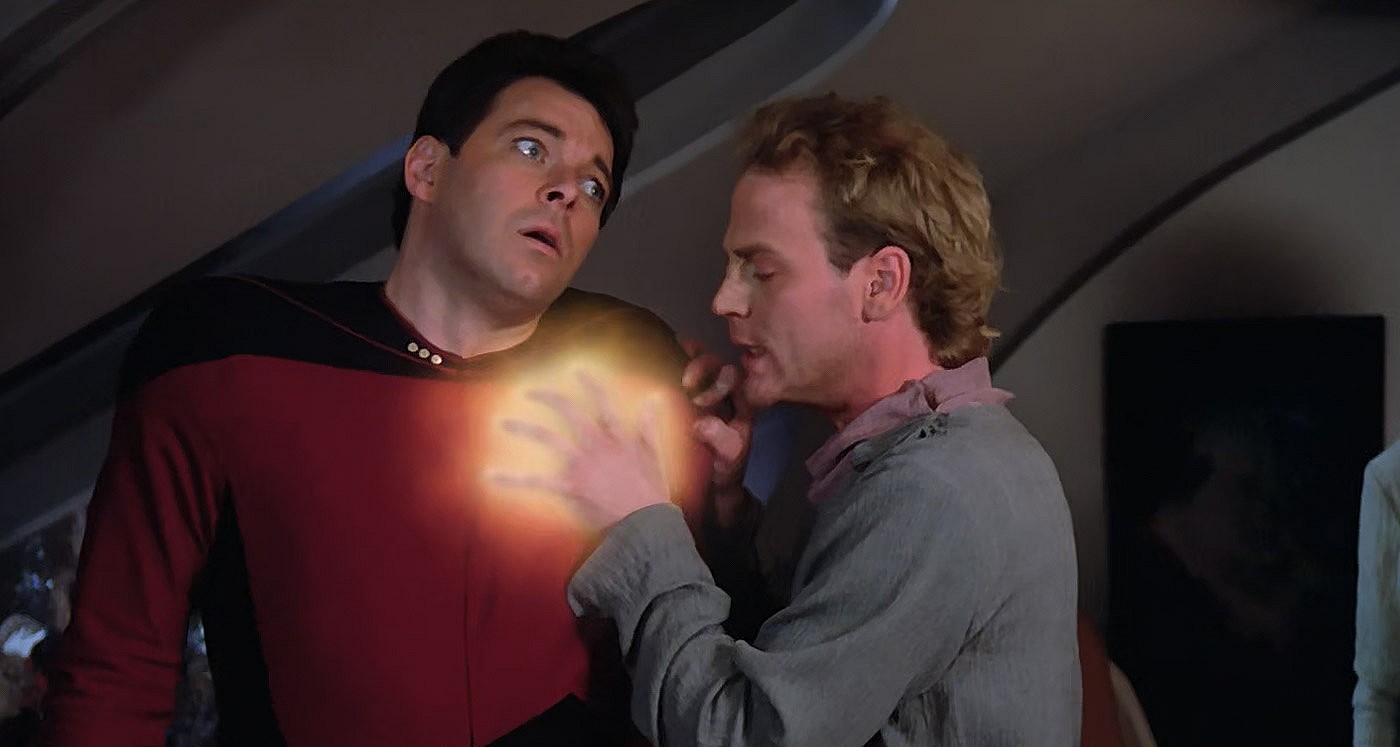
Thus, the relationship in question was predatory, yet when Captain Picard found out, he was bound by the Prime Directive not to interfere in the natural progression of the two species. This was an agonizing restriction, especially for Doctor Crusher, a woman who had sworn an oath to do no harm, and give medical care to anyone who needed it.
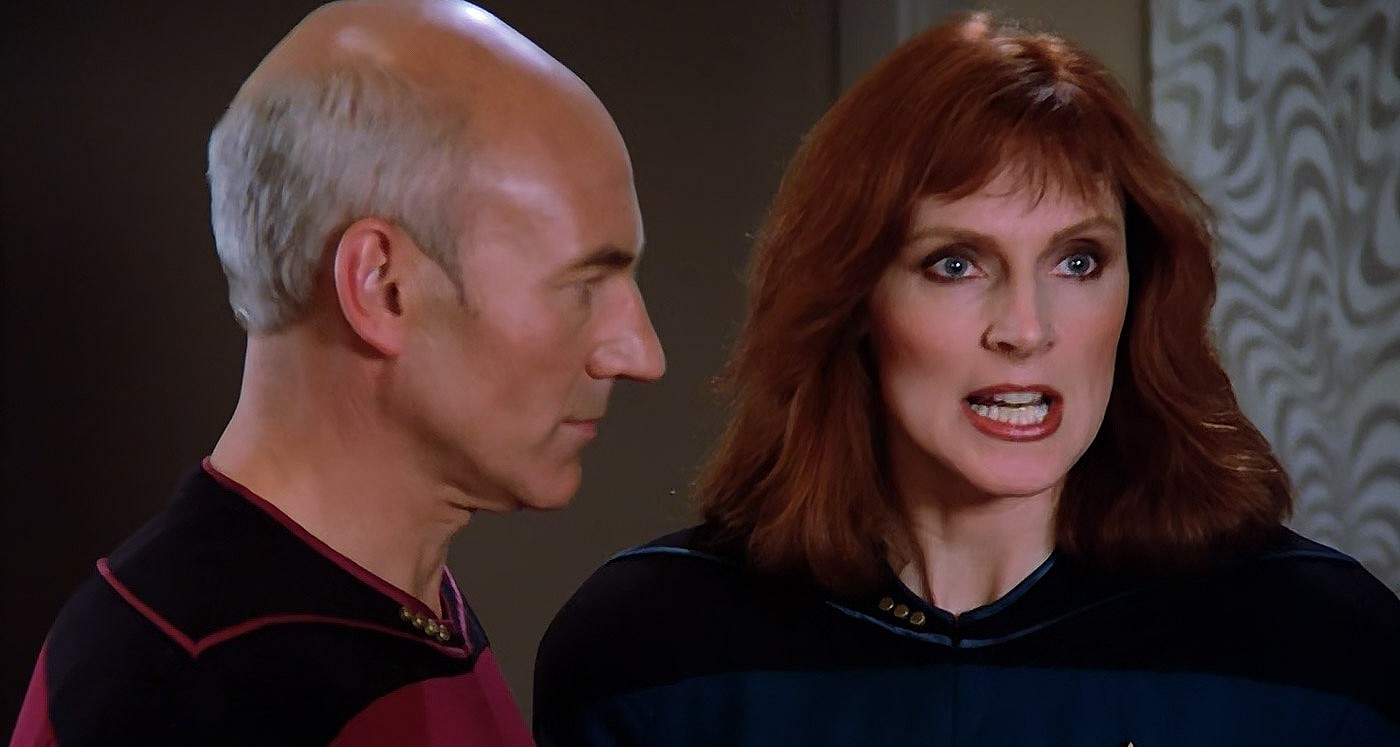
Picard eventually figured out a workaround. He denied a set of phase coils necessary to repair the addicted crew’s ships, which was necessary to transport the “cure” back to their home world. This had a two-pronged effect. First, it severed the symbiotic relationship between the two peoples, denying those taking advantage from continuing to exploit their “customers.”
At the same time, it forced the addicted populace to quit cold turkey, which was especially difficult, since Picard was prevented from revealing the nature of their addiction. Therefore, they believed the “plague” would kill them off. In truth, they would simply have gone through terrible withdrawal symptoms, and kicked their habit outright.
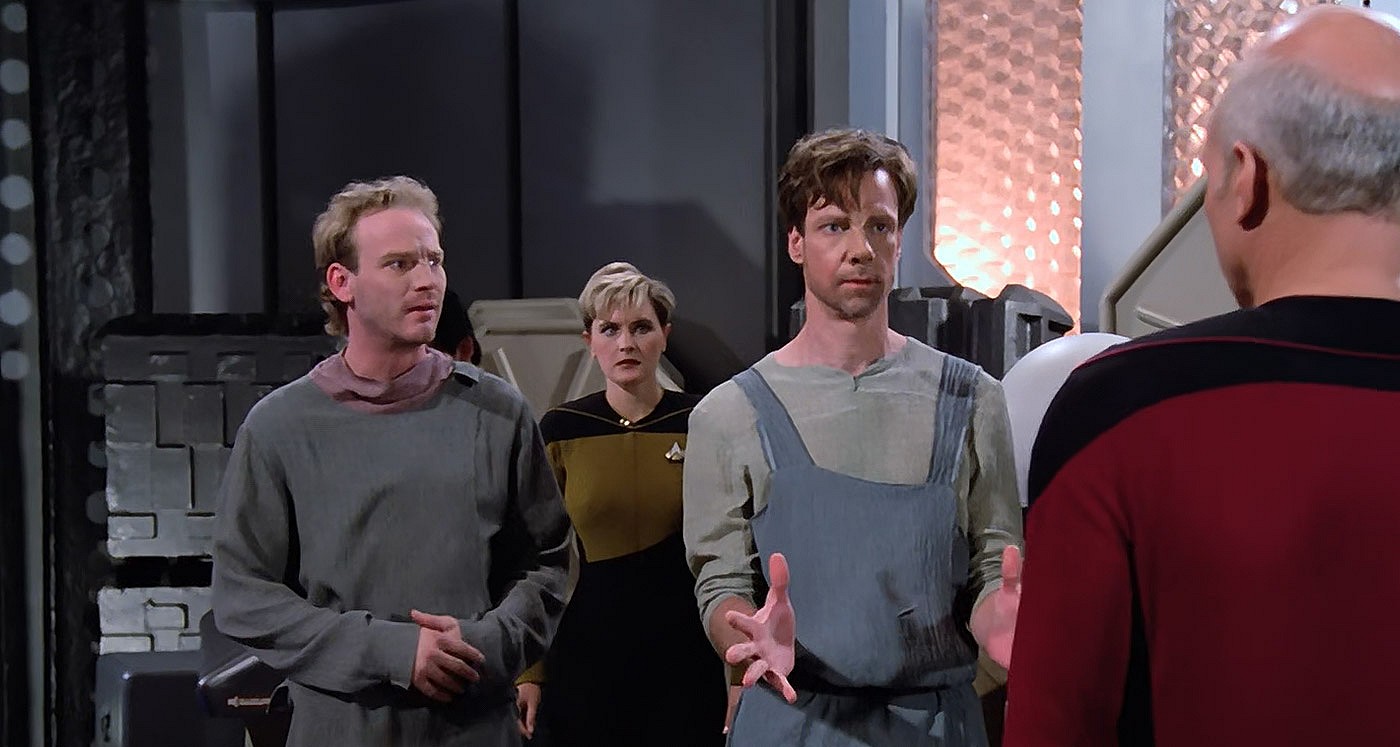
It was far from an optimal solution, but it was Picard’s way of leveraging the Prime Directive to his advantage in order to save a race who had been enslaved by 24th century drug pushers. Even with the law standing against him, Picard’s morality won out.
Fighting Against Slavery (“The Measure Of A Man,” Season 2)
This classic season 2 episode truly showed how gifted and talented TNG’s writing staff were. What began as a fight for Data’s rights as a sentient being soon blossomed into an extremely uncomfortable topic. It’s also one of the most important moral lessons ever taught on Star Trek: The Next Generation.
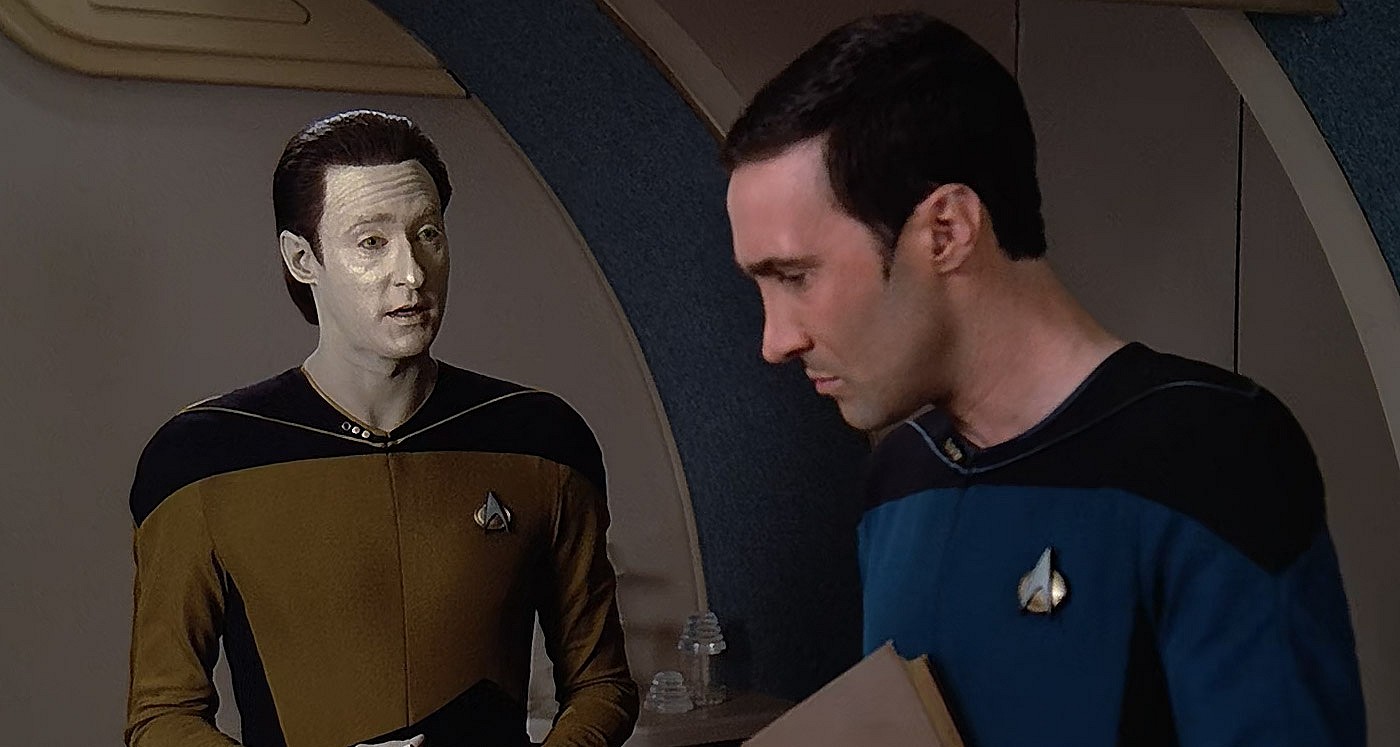
It begins when Data is ordered to undergo a risky procedure spearheaded by a Federation scientist who wants to create more androids. Rather than undergo the procedure, Data resigns from Starfleet so that he can opt out. However, things become dangerous when Starfleet rules that Data is their property, and therefore not allowed to resign.
Outraged, Picard demands a trial so that he can prove Data’s sentience, and establish his rights and freedoms like any other being. Arguments are made on both sides, some of them devastating for Picard, who at one point is forced to consider whether Data is just an automaton, as opposed to a real person.
It takes a conversation with Guinan in Ten Forward to realize that the battle being fought in the courtroom goes far beyond Data’s rights. In one haunting moment, Picard realizes that Guinan is referencing slavery for all the android life forms that would follow in Data’s wake; an entire race of “disposable people.”
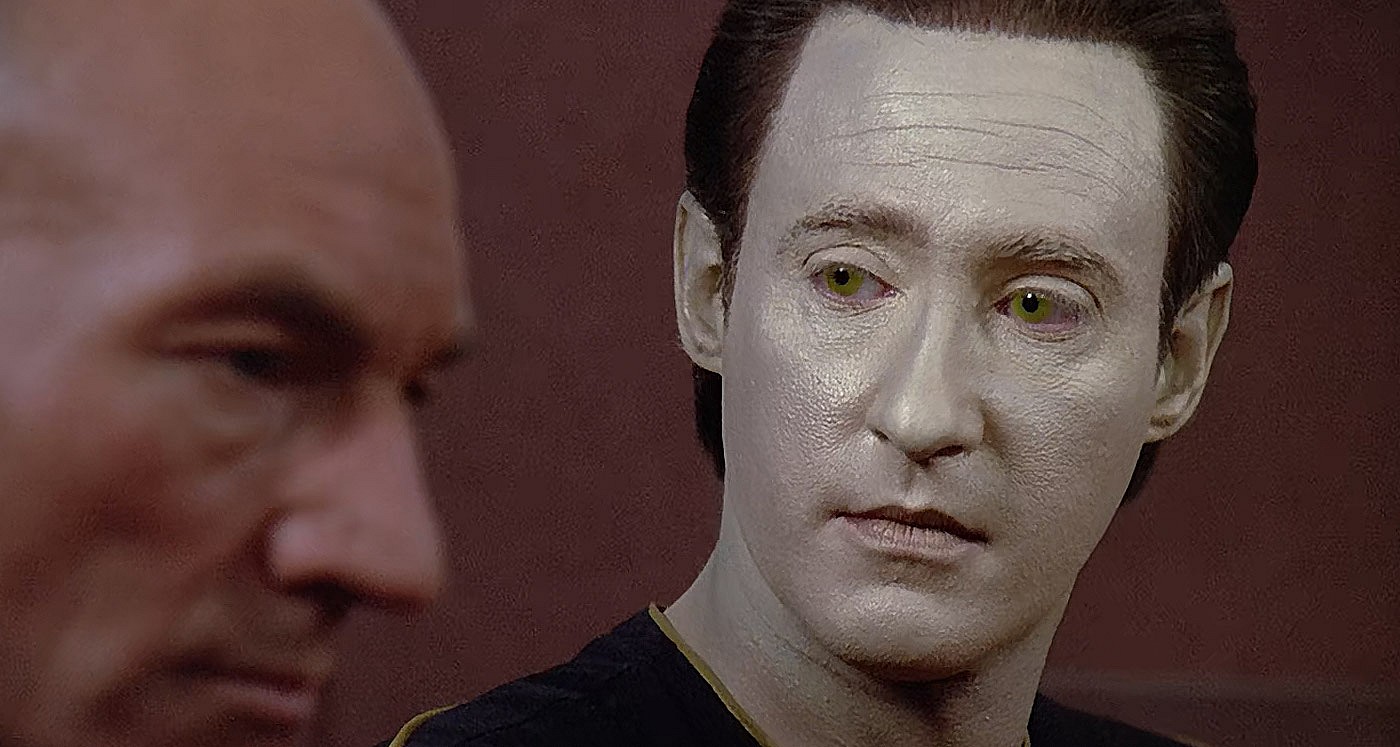
Armed with this new context, Picard launched a volley in the courtroom that stunned every single member, and left them second-guessing their positions. This has direct ramifications for our modern take on slavery, not because of its historical existence, but rather the lens through which the political Left view it.
These days, the concept of slavery is used as a cudgel to attack the very foundation of America’s history, as evidenced by Woke dogmatic drivel like the 1619 Project, authored by dishonest propagandist/New York Times writer Nikole-Hannah Jones. It’s a sentiment that has bled out through all corners of Leftism, and infected the current Democratic Party.
Slavery was practiced everywhere on Earth, parallel to the slave trade in the United States. Ironically, America was one of the first countries to outlaw slavery, yet it continues to be the whipping boy for the radical Left. As statues of slavery abolitionists like Ulysses S. Grant are pulled down by ravenous hate-mongering Leftist mobs, statues of Democrat KKK recruiters like Robert Byrd are left standing.
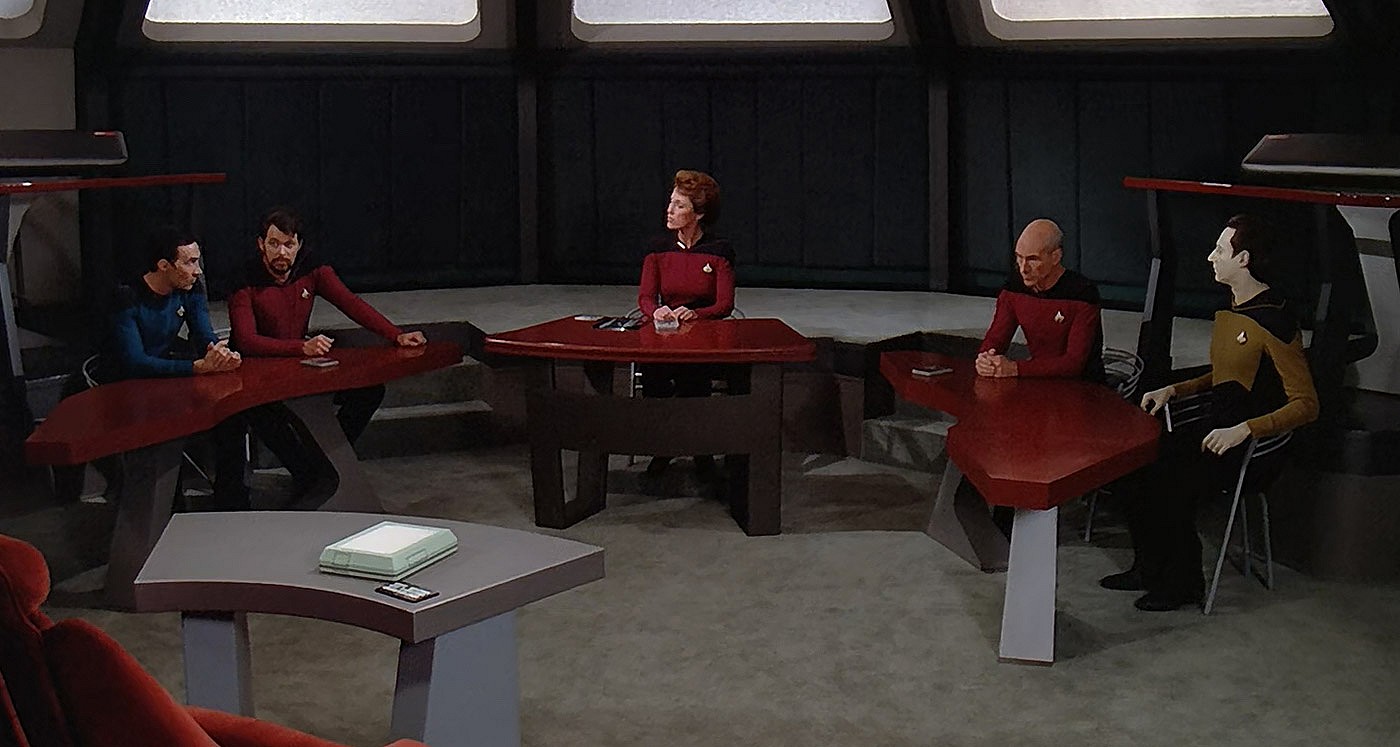
This is the double-standard of the current political Left, which attempts to mold slavery into a political weapon. By contrast, Captain Picard referenced slavery as an unfortunate universal truth bred of immature societies, and did not single out any one group as the sole perpetrator.
It’s probably better that he didn’t, since America’s Democratic Party enshrined and benefitted from slavery, founded the KKK, enacted Jim Crow segregation laws in the south, offered little-to-no support for the 13th, 14th or 15th amendments to the Constitution, and tried its hardest to torpedo Civil Rights reforms in 1964. All of these actions failed through the sheer persistence of the Republican Party.
And no, the parties never switched.
His Stance Against Political Terrorism (“High Ground,” Season 3)
The episode “High Ground” touched on very uncomfortable subject matter back in the 1980s, especially given the rash of terrorist attacks in places like Ireland. These days, the message can be directly linked to the use of political violence by radical Left groups such as Antifa and Black Lives Matter, who are still on the warpath.
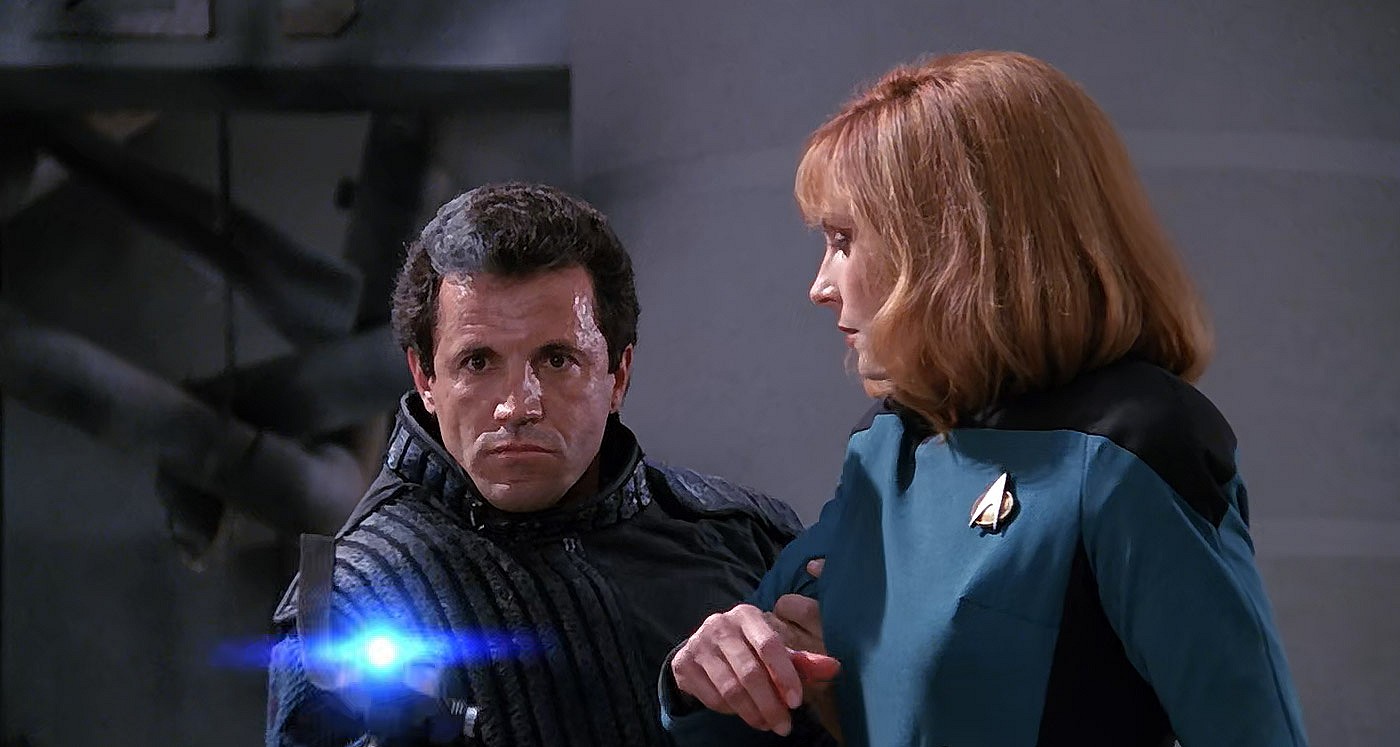
When Doctor Crusher is kidnapped by a group of political terrorists on a dangerous world, their leader attempts to use her to drag Starfleet into the conflict, all for the sake of exposure. The episode makes direct references to child soldiers being used as terrorists, as well as the use of bombs in school transport vehicles.
It’s ugly, and it’s meant to be. At the heart of the episode is one key, pivotal scene where Data discusses political violence with Captain Picard. He offers the view that terrorism has been used successfully in the past in order to effect political and social change, which sets up one of Picard’s best responses.
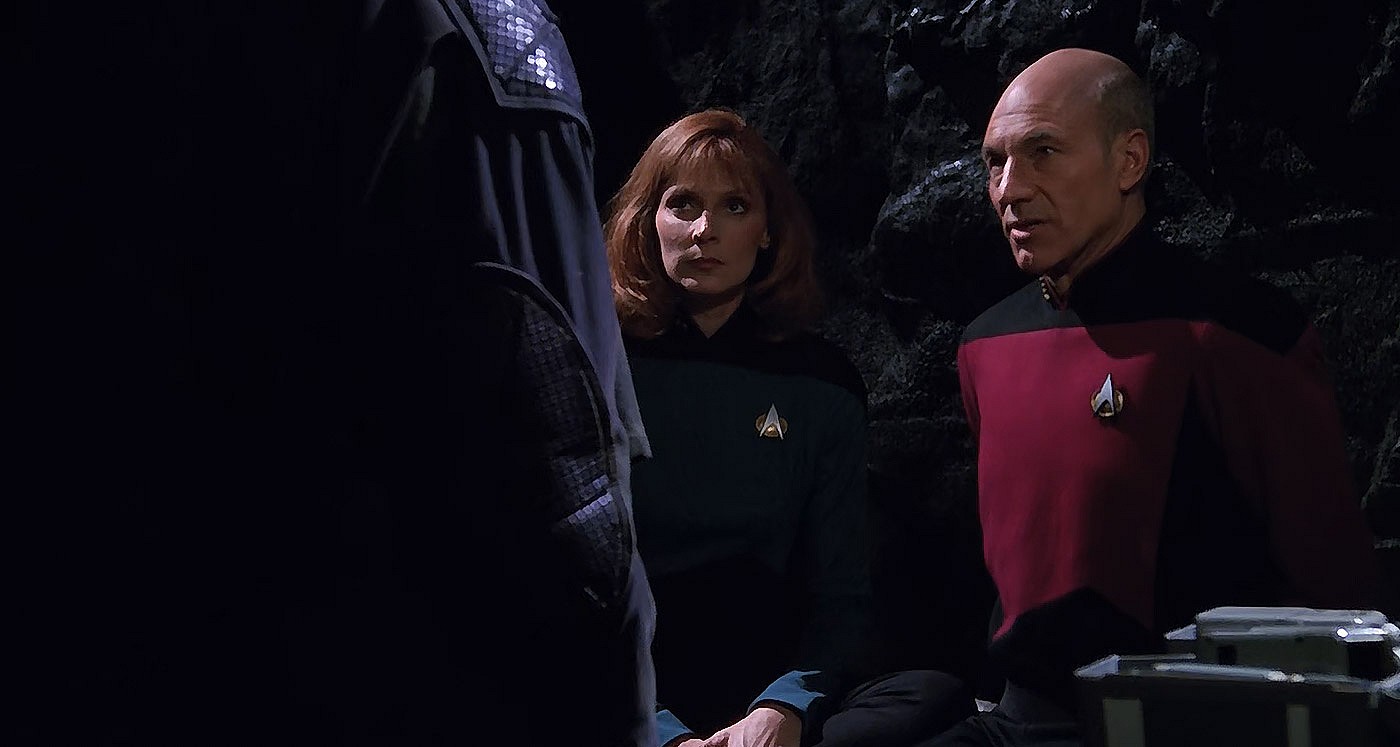
“Yes, it can be, but…I have never subscribed to the theory that political power flows from the barrel of a gun.”
It’s brilliant, on point, and should resonate more in our modern age than it did back in the 1980s, especially given the social upheaval by domestic terrorist groups operating with the cheers, blessings and frenzied antagonism of politicians in Congress. It should also serve as a warning that society is going down a very dark and destructive path.
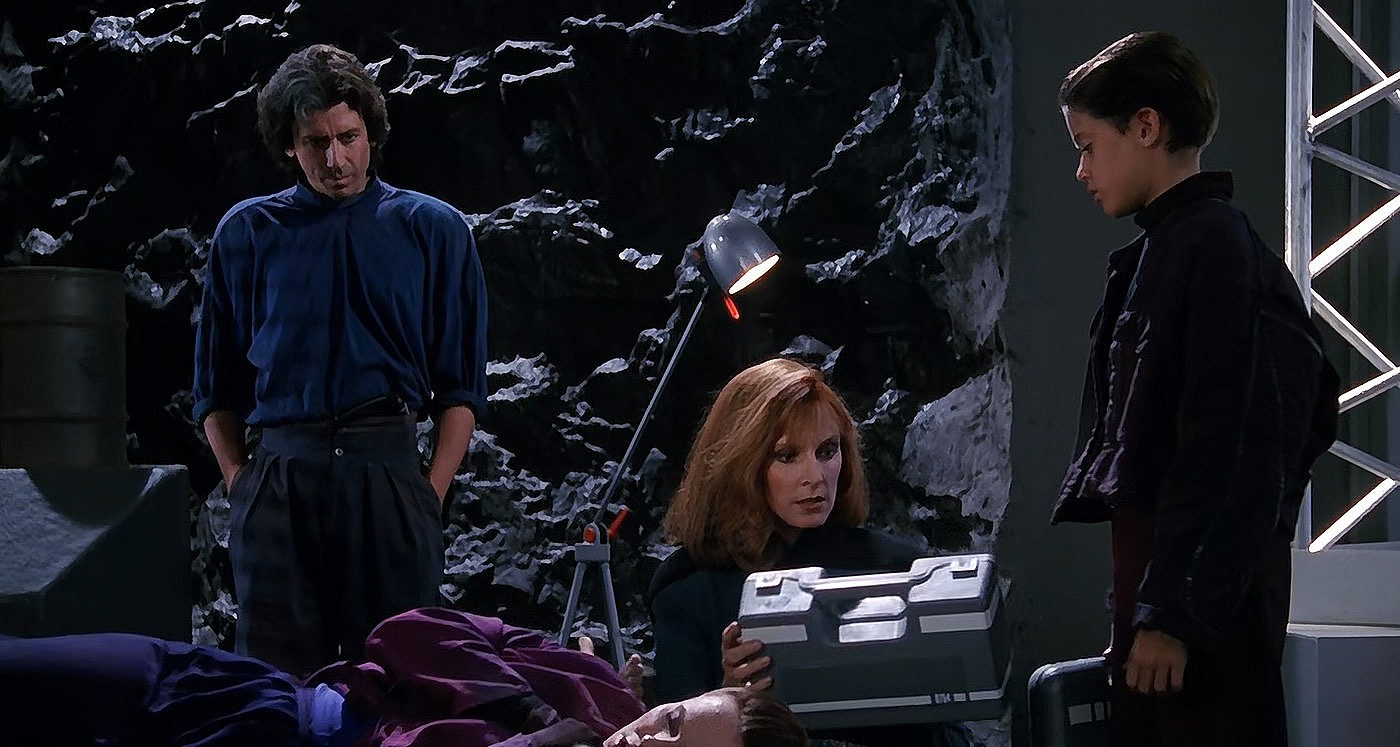
Whether it’s the BLM-inspired mass rioting of 2020, which lasted for months, and ended with $5 billion in estimated uninsured property damage and numerous dead (including police officers), or the vagrant scofflaws who decided to cosplay and riot in the halls of Congress on January 6th, no act of political violence should be tolerated, or viewed as a constructive social good.
Fighting Tyrannical Provocateurs (“The Drumhead,” Season 4)
Without a doubt the most frighteningly poignant TNG episode as it relates to our time, “The Drumhead” is a reminder of how we as a society can quickly fall into the chasm of paranoia and oppression. It’s playing out right now, before our very eyes in every corner of Western society, and more people are taking notice.
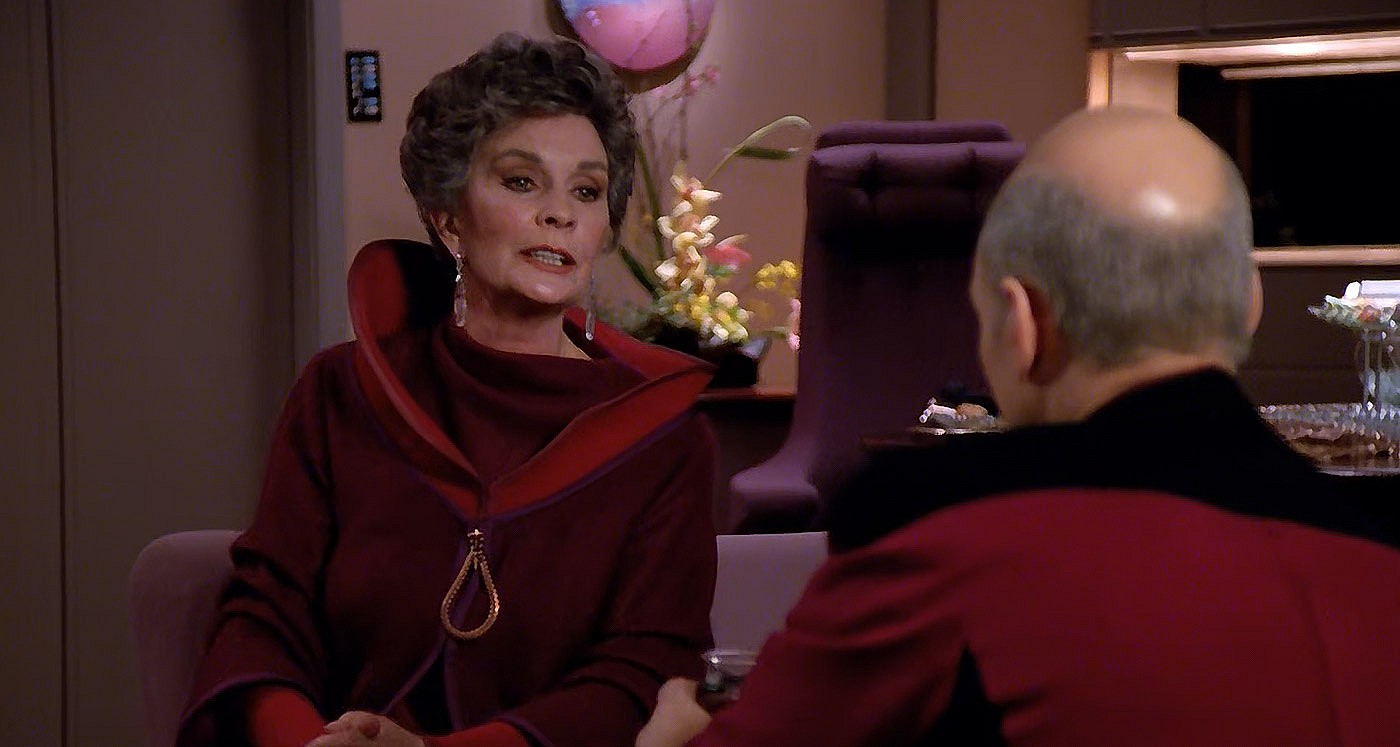
It begins when a saboteur is apprehended on the Enterprise, prompting the arrival of Norah Satie, a highly decorated and distinguished member of the Federation who has a reputation for weeding out evildoers. Her investigation coincides with an explosion in engineering, which is believed to be linked to the saboteur.
Yet, when investigations reveal that it was nothing more than a simple design flaw, Satie isn’t satisfied. She keeps pushing her investigation into every corner of the ship, and soon, every single crew member becomes a suspect in a conspiracy of her own making.
Slowly, the Enterprise descends into panic and paranoia as Satie turns into a Nancy Pelosi-type character who instigates a witch hunt. While she pursues a punishment in search of an actual crime, Picard begins to realize just what kind of a threat she poses. He is eventually put on the stand and accused of blatant treason by Satie.

When Satie hammers him with one horrible accusation after another, Picard calmly replies, “You know, there are some words I’ve known since I was a schoolboy. ‘With the first link, the chain is forged. The first speech censured, the first thought forbidden, the first freedom denied, chains us all irrevocably. The first time any man’s freedom is trodden on, we’re all damaged.'”
The quote was from Satie’s own father, a prolific and well-respected figure in Federation history, which throws her into a fit of rage, and exposes her for what she is. Her investigations are shut down, and the Enterprise is forced to deal with the trauma of what they’ve just endured, while getting back to normal.
In our modern age, the censorious and tyrannical Left have weaponized the highest levels of government, corporations and institutions to suppress and silence any single voice that does not agree with their views. It’s no longer being hidden, but actively pursued in plain sight.
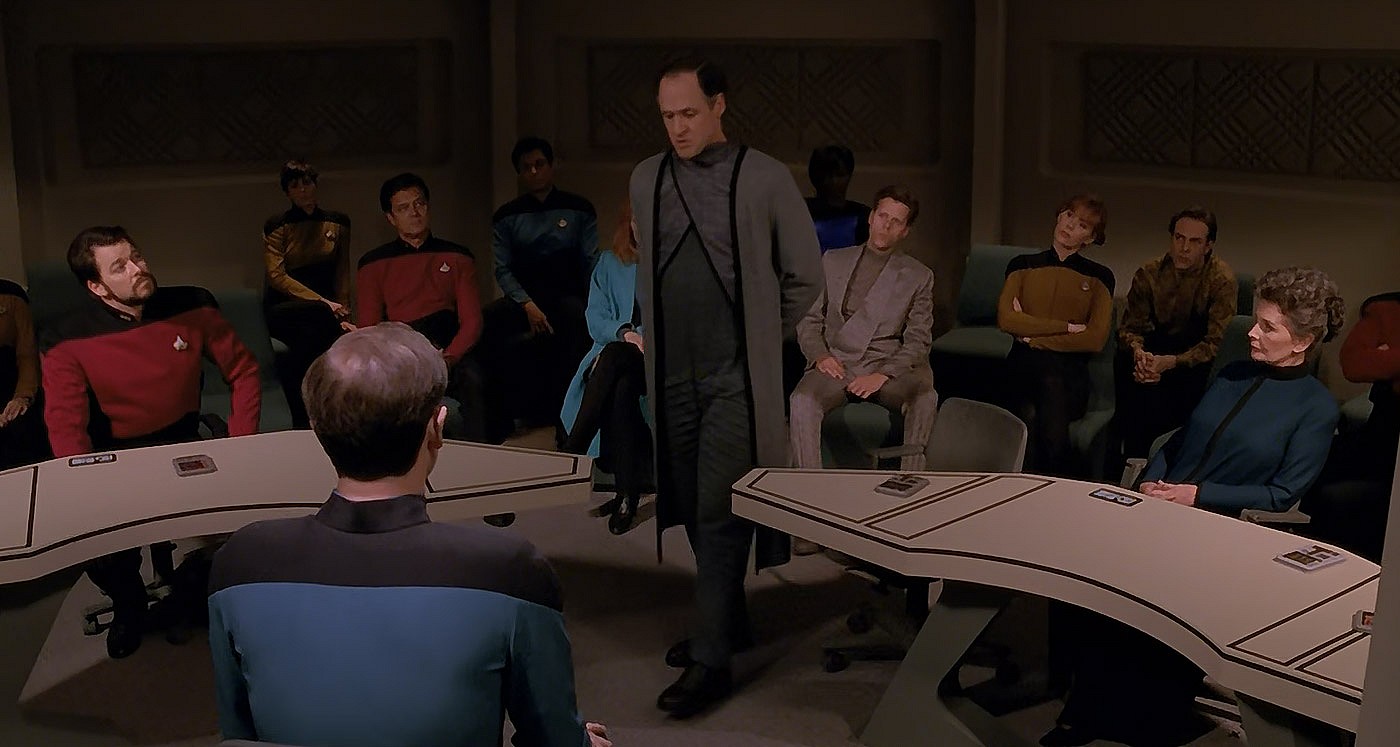
Picard’s quote represents one of the most important battles of our time, and it’s not to be taken lightly. As the Left keeps pushing for totalitarian groupthink and control over what people can say, do, and even think, the opposing side grows in strength, and continues to fight back.
Indeed, Picard sums it up best at the end of the episode when he says “…she, or someone like her will always be with us, waiting for the right climate in which to flourish, spreading fear in the name of righteousness.” This single quote sums up the entirety of Leftist culture in our modern age, with succinct accuracy.
Learning From Experience (“Tapestry,” Season 6)
These days, a single tweet from decades past is enough for the tyrannical Left to attempt to destroy a person, and that trend shows no signs of slowing down. Every single human being is imperfect, and their pasts are littered with one mistake after another. This is part of what helps we as humans grow, and become better people.
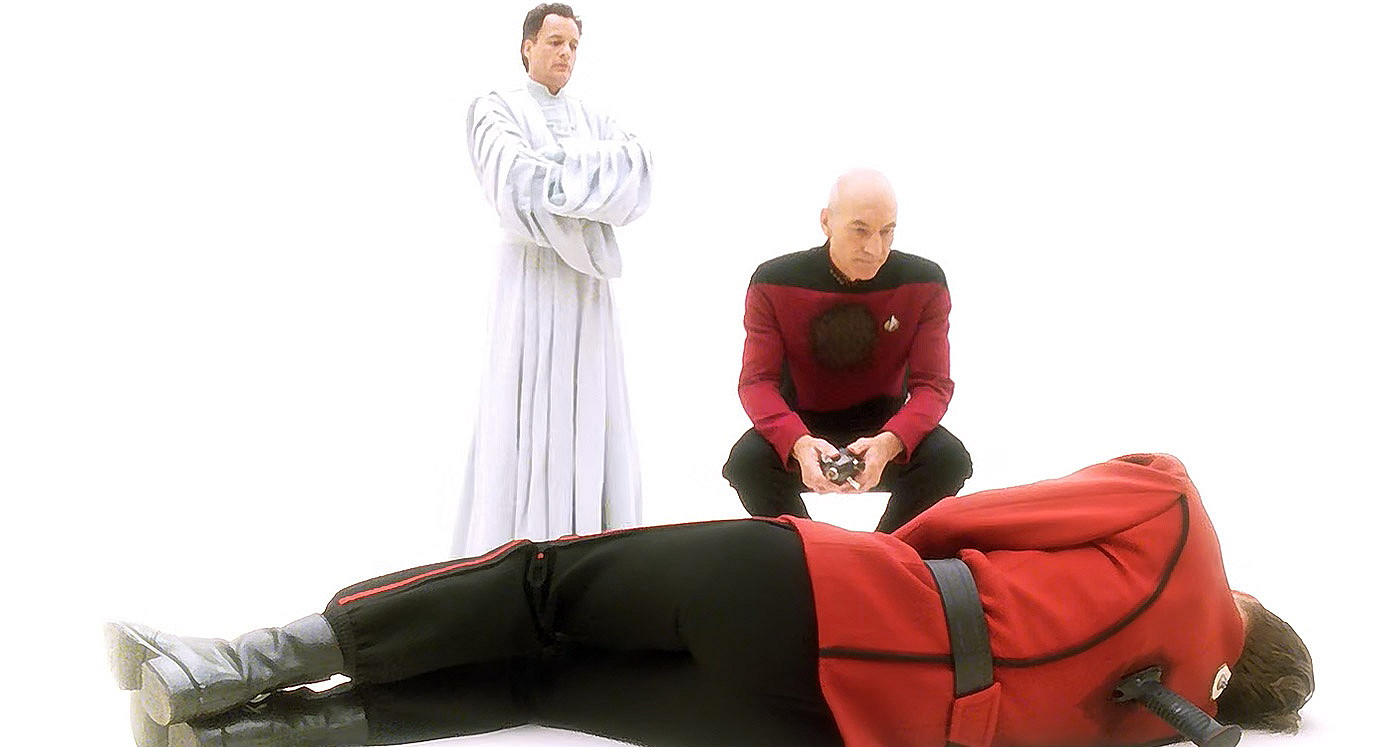
The Next Generation examined this topic in the season 6 episode “Tapestry,” when Picard literally dies on an emergency room table. His life force is intercepted by the omnipotent Q, who decides to grant Picard’s wish to do his life over, and right the wrongs of his past.
Unfortunately, while Picard keeps zigging where he previously zagged, he makes things exponentially worse on himself. He plays it too safe with the ladies, he alienates his fellow Starfleet cadets, and he eventually finds himself in the modern day as an Ensign with no outstanding career achievements.
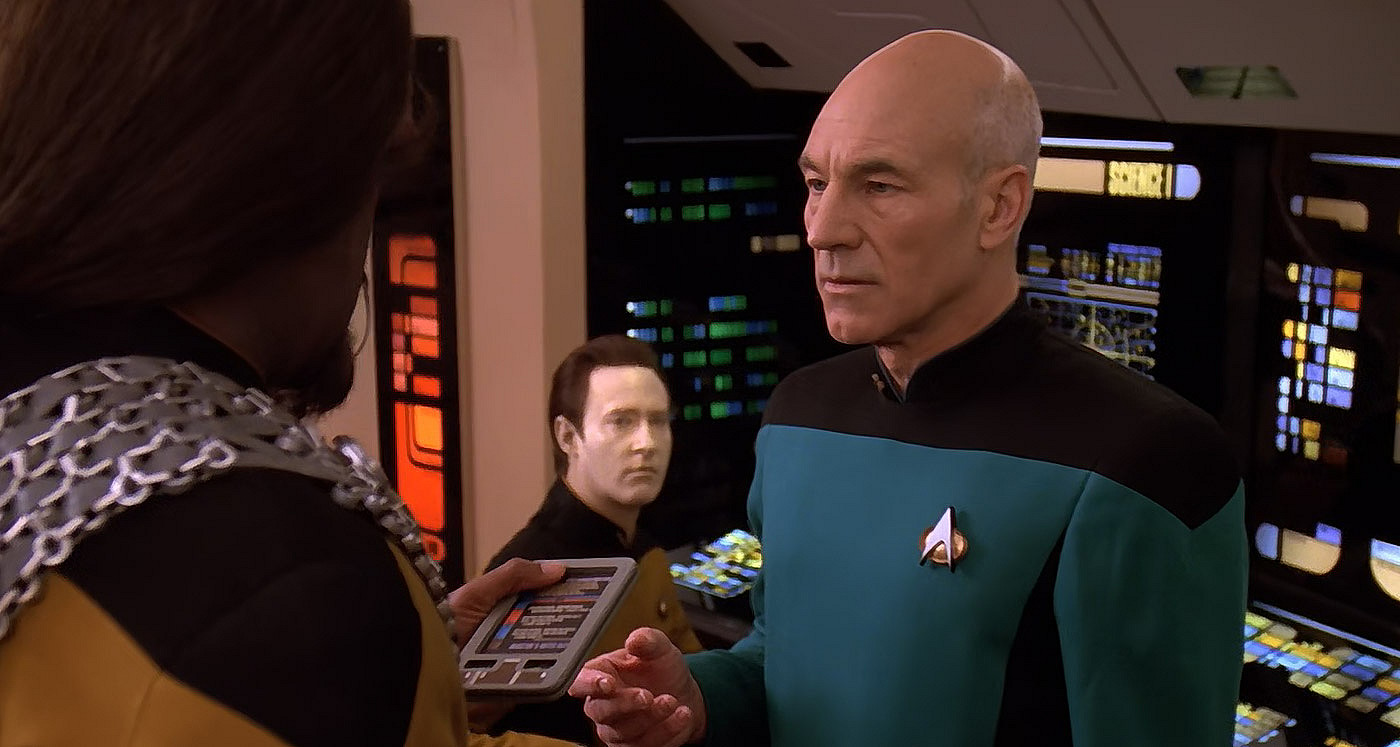
In short, Picard becomes a man bereft of passion, enthusiasm or excitement, and it ends up ruining his life as a result. He begs Q to allow him to set things right (again), and die as the man he once was. Q grants the request, while supposedly reviving Picard in the process, allowing him to keep on living.
The lesson learned in this episode was obvious – imperfections are what make us human, and for one hateful group of people to lord those imperfections over everyone else (while conveniently ignoring their own repugnant behavior and character flaws) is flat-out immoral, and wrong.
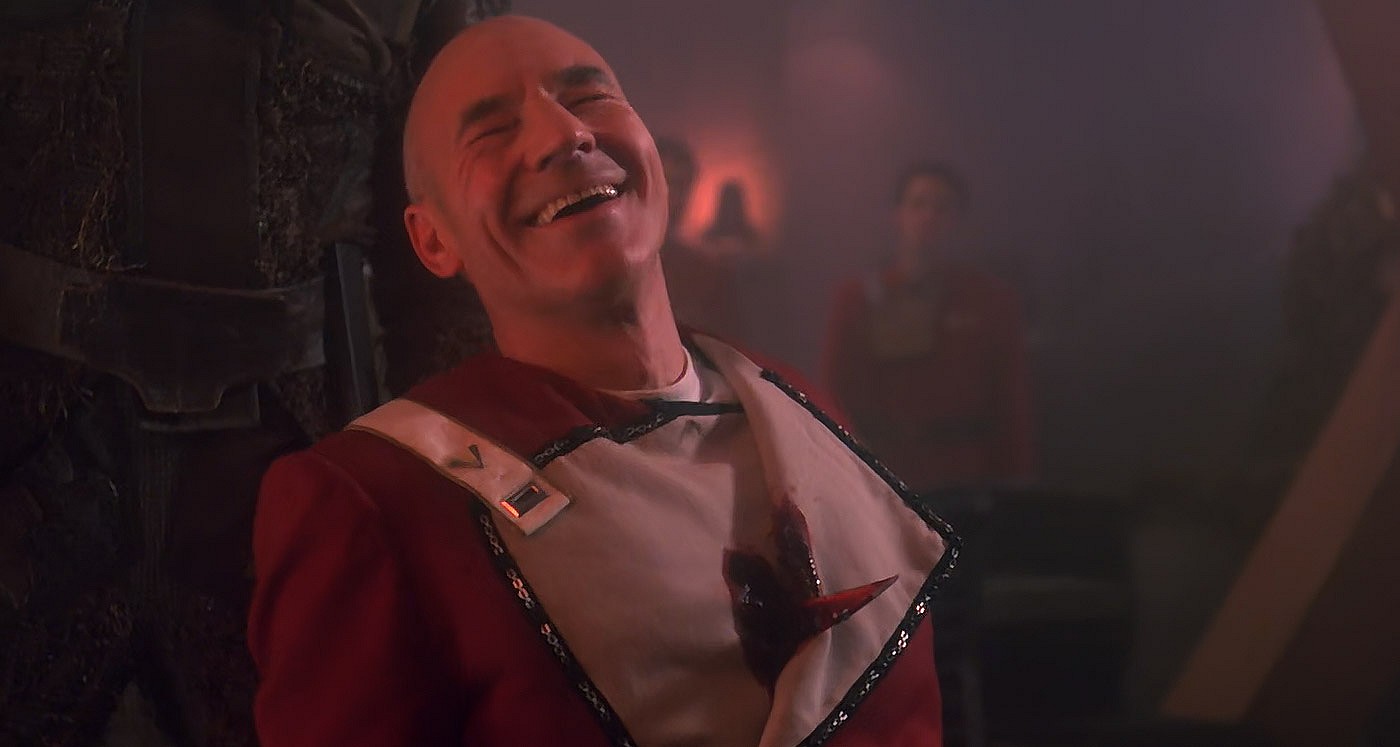
Cancel culture is all-too-real, and it’s causing immense damage to society, spurred on by money-hungry social media outlets which are all-too-happy to foment hatred, conflict and division for the sake of addicting their customers to the rage. Those perpetrating these hateful attacks are bereft of morality; empty shells pearl-clutching whilst proclaiming an unearned sense of moral superiority.
Conclusion
There are too many examples where Captain Picard exhibited the kinds of qualities that every human being should attempt to emulate. From refusing to “just follow orders” and fire on defenseless people, to breaking the Prime Directive to save the life of an innocent young man, Picard followed his conscience.
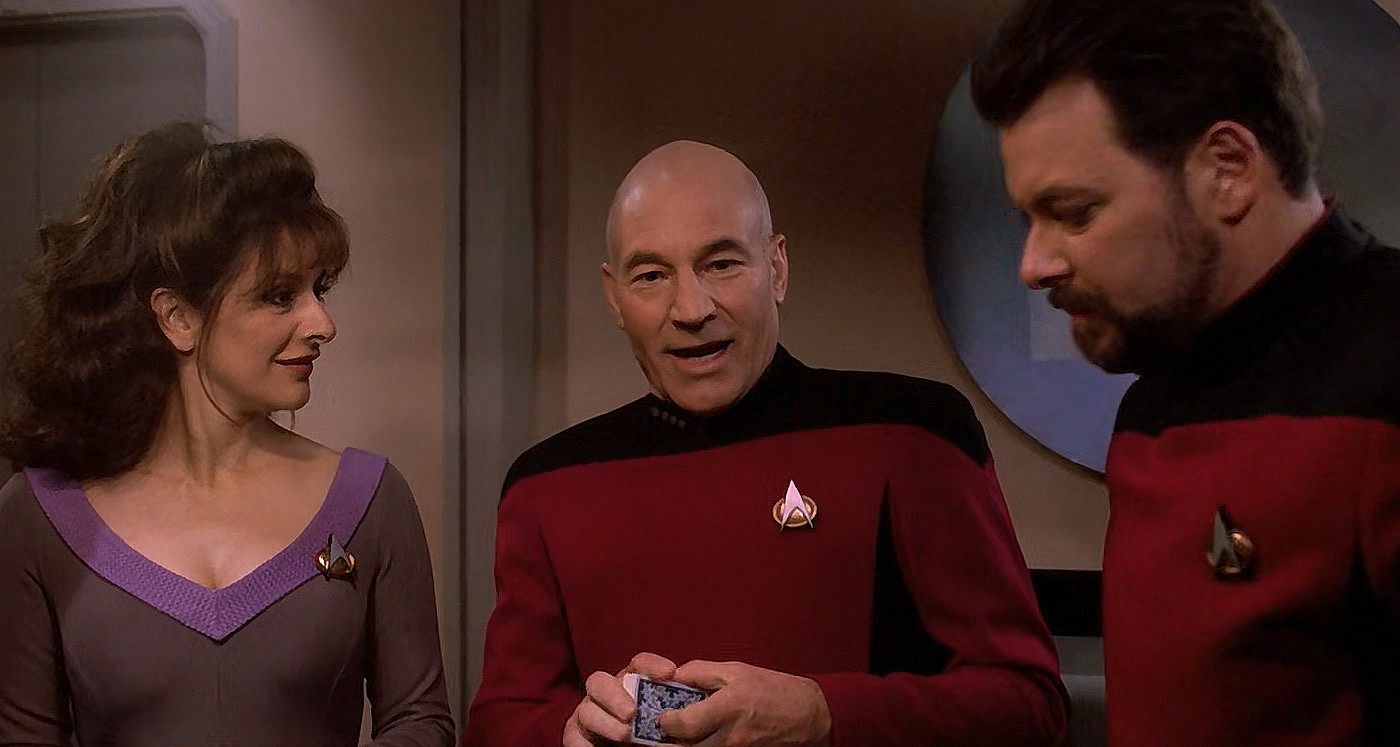
He didn’t cave to the mob, nor did he buckle when his superiors attempted to strong-arm him into compliance. Picard had an unbreakable moral compass that has made him one of pop culture’s finest and most distinguished champions, not to mention a role model for our children to follow.
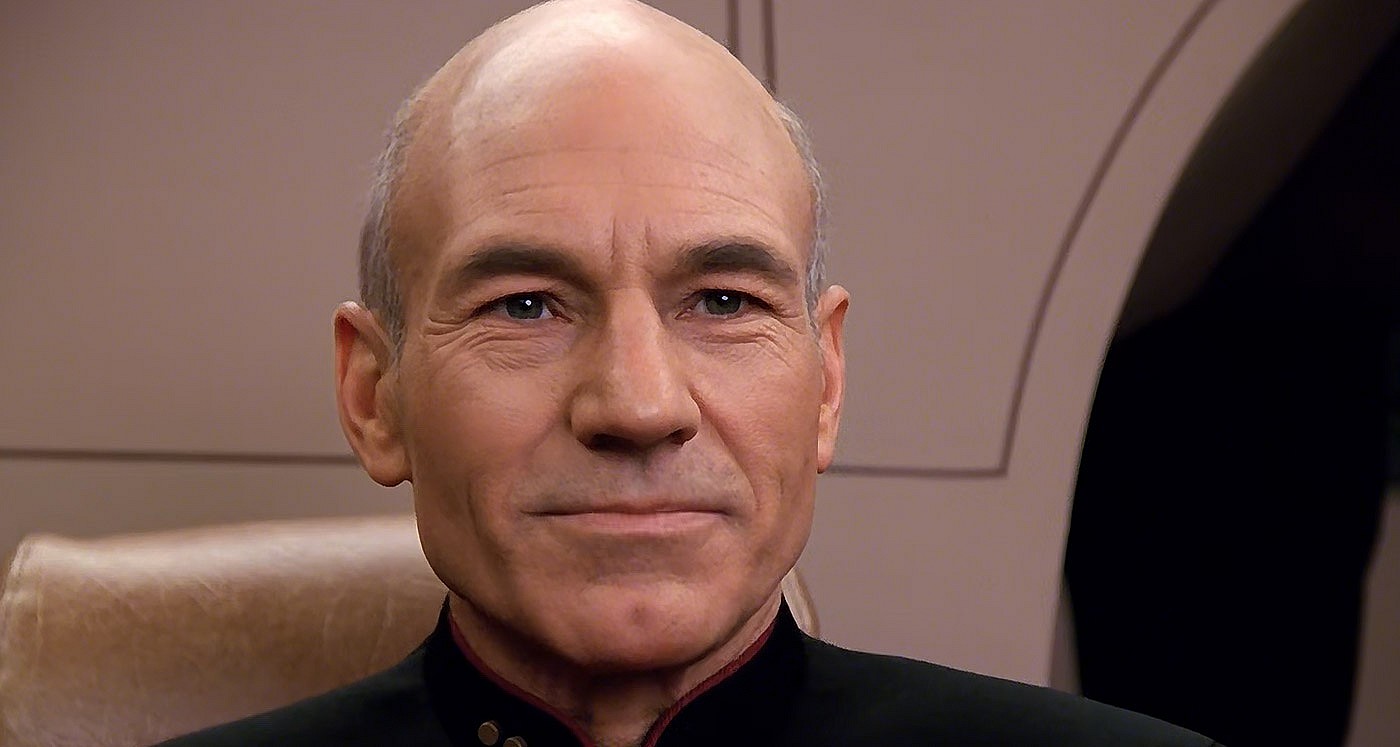
Unfortunately, the character has since been hijacked by the radical Left, who have turned him into a shadow of his former self (much like Star Trek in general), but true Trekkers have already tuned out. They know where the heart and soul of the series lies, and it’s in characters like Captain Jean-Luc Picard – a poet, a gentleman, and a hero.
NEXT: The 10 Best Geordi La Forge Episodes Of Star Trek: TNG
